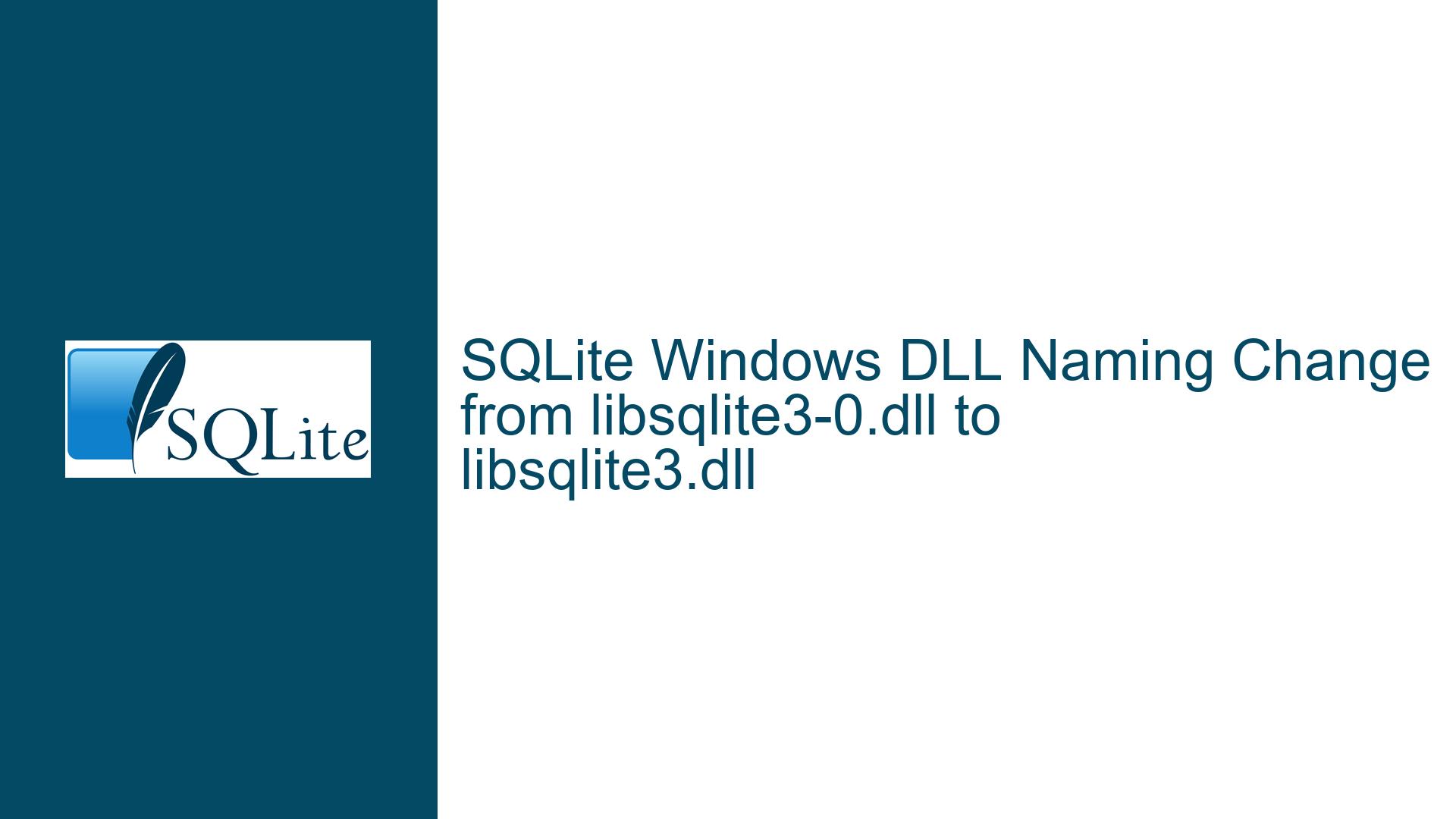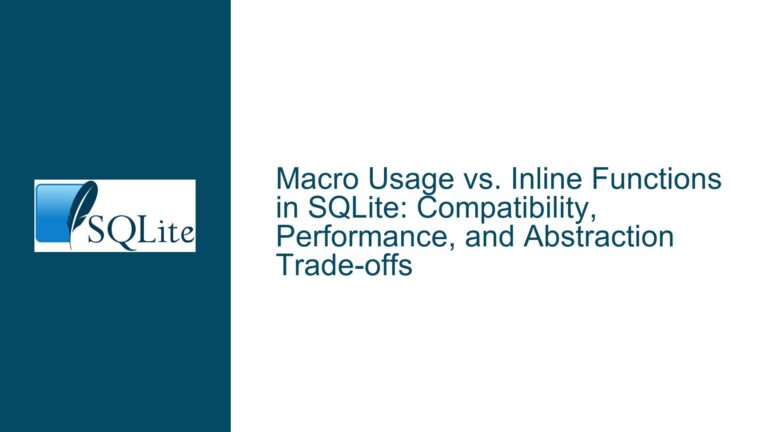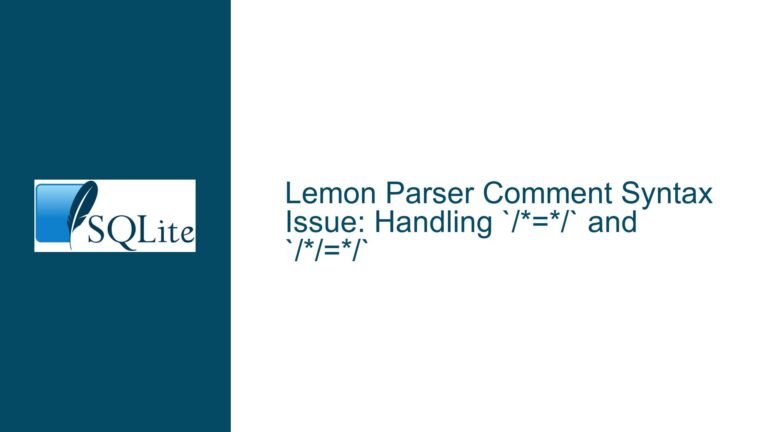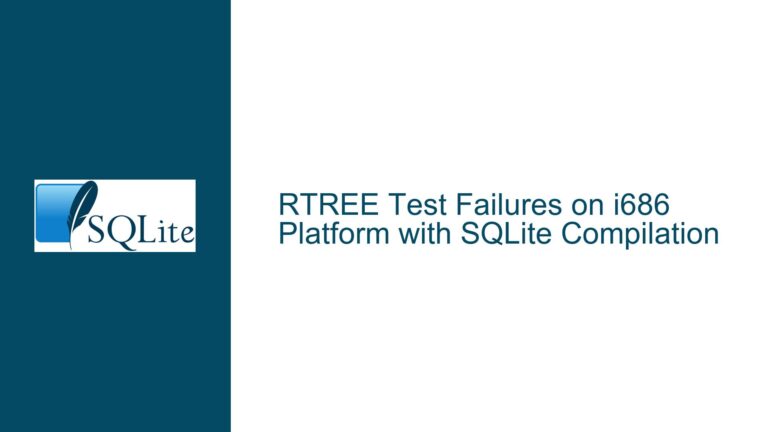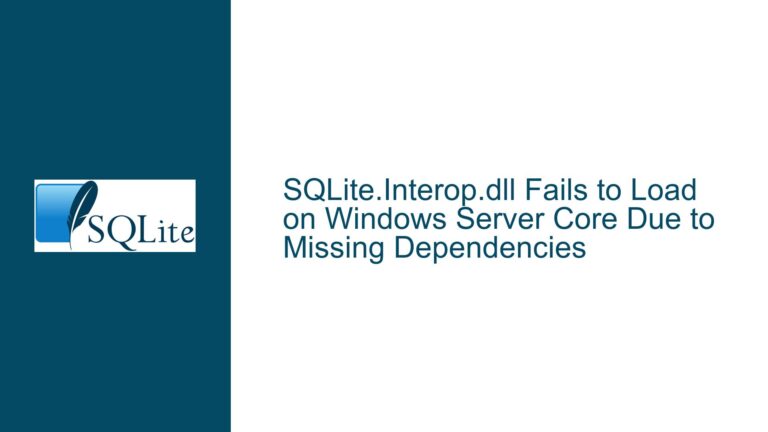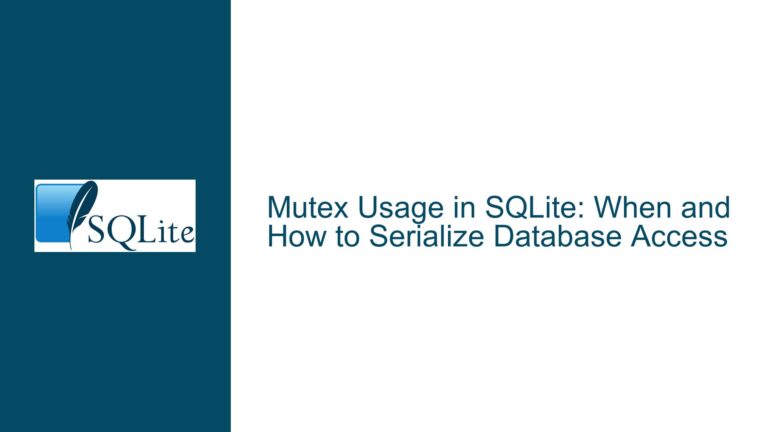SQLite Windows DLL Naming Change from libsqlite3-0.dll to libsqlite3.dll
SQLite Windows DLL Naming Change in Version 3.49
In SQLite version 3.49, a significant change was introduced regarding the naming convention of the Windows dynamic link library (DLL). Prior to this version, the library was named libsqlite3-0.dll. However, starting with version 3.49, the library name was simplified to libsqlite3.dll. This change has raised questions among developers, particularly those who rely on cross-compilation or specific build environments, as it impacts how dependencies are managed and linked.
The change in the DLL naming convention is not merely cosmetic; it has practical implications for developers who have built systems and workflows around the previous naming scheme. The removal of the -0 suffix, which was previously appended to the DLL name, has led to confusion and necessitated adjustments in build scripts, import libraries, and linking processes. This post will delve into the reasons behind this change, its implications, and how developers can adapt their workflows to accommodate the new naming convention.
Unintended Consequences of libtool’s Platform-Specific Behavior
The change in the DLL naming convention from libsqlite3-0.dll to libsqlite3.dll was not an intentional decision by the SQLite development team to disrupt existing workflows. Instead, it was a side effect of moving away from the libtool build system, which had been handling platform-specific naming conventions automatically. libtool is a generic library support script that automates the process of building shared libraries across different platforms. It includes various platform-specific behaviors, such as appending version numbers or platform-specific prefixes to library names.
In the case of SQLite, libtool was appending the -0 suffix to the DLL name when building for Windows. This behavior was not explicitly documented or intended by the SQLite developers, but it became the de facto standard due to libtool‘s automatic handling of library naming. When the SQLite team decided to move away from libtool to gain more control over the build process, this automatic suffixing was no longer applied, resulting in the simplified libsqlite3.dll name.
The SQLite development team was unaware of the -0 suffix being a default behavior in certain environments, such as those using mingw-w64 or cygwin. This lack of awareness led to the unintentional change in the DLL naming convention. The team’s primary focus was on simplifying the build process and reducing reliance on external tools like libtool, which introduced complexity and platform-specific quirks that were difficult to manage.
Adapting Build Scripts and Import Libraries to the New DLL Naming Convention
For developers who rely on the previous DLL naming convention, the change to libsqlite3.dll necessitates updates to build scripts and import libraries. The most straightforward approach is to rebuild all dependencies to use the new library name. However, this may not always be feasible, especially in environments where the -0 suffix is expected or where patching existing binaries is required.
One solution is to manually rename the DLL and update the import library to reflect the new name. This involves modifying the .dll.a file (the import library used by mingw-w64) to reference libsqlite3.dll instead of libsqlite3-0.dll. This can be done using tools like dlltool, which is part of the mingw-w64 toolchain. The following steps outline the process:
Rename the DLL: After building SQLite, rename the resulting
libsqlite3.dlltolibsqlite3-0.dllif your environment requires the old naming convention.Update the Import Library: Use
dlltoolto create a new import library that references the renamed DLL. The command might look like this:dlltool --dllname libsqlite3-0.dll --input-def sqlite3.def --output-lib libsqlite3.dll.aThis command generates a new import library (
libsqlite3.dll.a) that links tolibsqlite3-0.dll.Adjust Build Scripts: Update your build scripts to use the new import library and ensure that all linking steps reference the correct DLL name.
For developers who prefer to avoid manual renaming and patching, another approach is to modify the SQLite build system to support custom DLL names. This can be achieved by extending the configure script to accept a --dll-name parameter, allowing developers to specify the desired DLL name during the build process. For example:
./configure --dll-name=libsqlite3-0 --out-implib
This would generate a DLL named libsqlite3-0.dll and an accompanying import library. While this approach requires changes to the SQLite build system, it provides a more flexible and maintainable solution for environments that require specific naming conventions.
In conclusion, the change in the SQLite Windows DLL naming convention from libsqlite3-0.dll to libsqlite3.dll was an unintended consequence of moving away from the libtool build system. While this change simplifies the library name, it has necessitated adjustments in build scripts and import libraries for developers who rely on the previous naming scheme. By understanding the reasons behind this change and implementing the appropriate adaptations, developers can continue to use SQLite effectively in their Windows-based projects.
